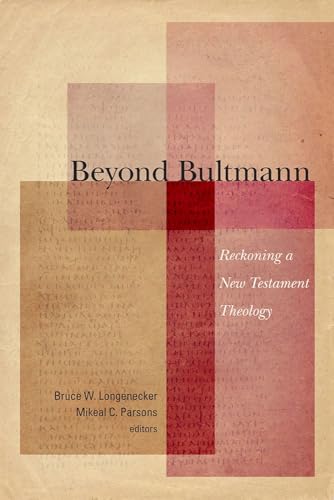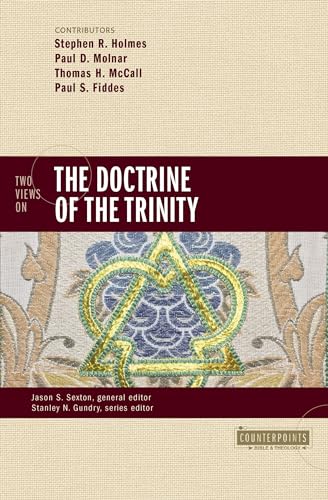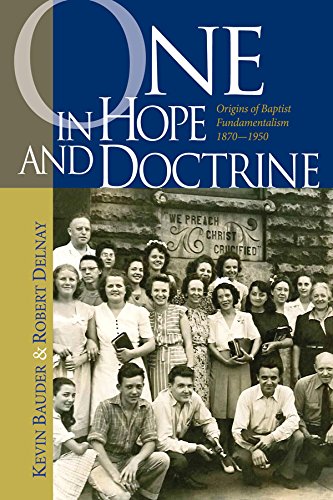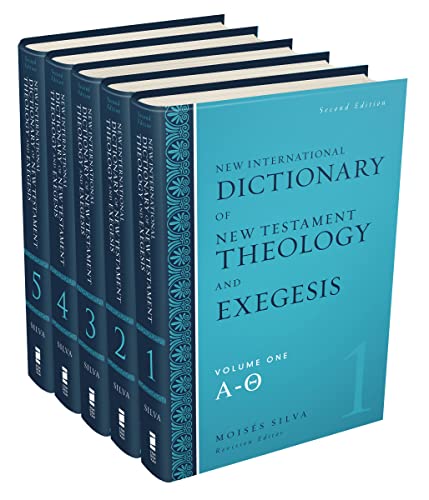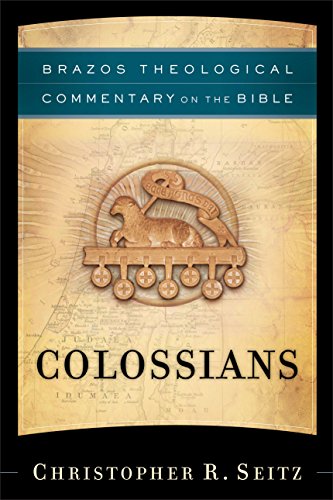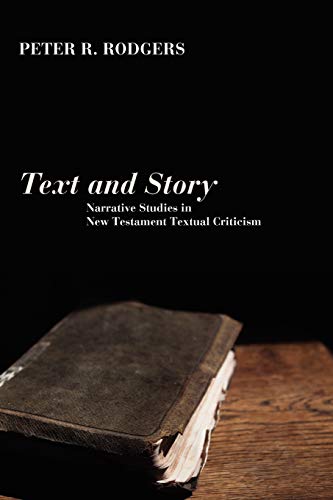Beyond Bultmann: Reckoning a New Testament Theology
Written by Bruce W. Longenecker and Mikeal C. Parsons, eds. Reviewed By Joshua W. JippThe project of New Testament Theology (hereafter NTT), I think it is fair to suggest, has had its heyday. Fewer and fewer New Testament scholars seek to present a coherent account of the NT compositions that is simultaneously attentive to exegesis, history, hermeneutics, and the theological claims made by these texts. Despite disagreements with his execution of the project, Rudolf Bultmann’s Theology of the New Testament is considered by many to be unequalled in its ability to relate history and theology through strong readings of the NT texts. This sentiment is stated nicely by C. Kavin Rowe: “In an area of scholarship in which an almost rabid specialization is the norm, Bultmann actually knows what he thinks the whole New Testament is basically about – and this in connection to particular contemporary currents of thought that profoundly shape reflection’s historicity. This is no small feat” (p. 36).
In response, then, to the legacy of Bultmann’s magisterial NTT, this volume seeks to explore the question, to “what extent can we move forward in relation to the powerful influences [Bultmann] has exerted within New Testament studies?” (p. viii). The editors have assembled an impressive group of first-rate NT scholars with each one asked to reflect upon the strengths and weaknesses of a specific chapter within Bultmann’s NTT. Almost without fail, each scholar praises Bultmann’s NTT as exerting significant influence on their education and scholarly development. Likewise, most of the essayists continue to credit Bultmann’s NTT as impressively coherent, containing strong readings of the NT compositions, hermeneutically sophisticated, and remarkable in its ability to control historical data. That said, the present project is an attempt to move Beyond Bultmann, and, therefore, the rest of my review will focus upon the essayists’ criticisms of Bultmann’s NTT, given that these criticisms make up the majority of the work.
The kerygma, so central to Bultmann’s project as God’s address to humanity, is, argues Rowe, never defined and this is due to the fact that, for Bultmann, the kerygma does not have “specific conceptual content” (p. 32). This is philosophically problematic as well as at odds with the witness of the NT (pp. 32–34). Numerous essayists (e.g., Schnelle, Hays, Frey) predictably but rightly take Bultmann to task for his early dating of Gnosticism and his use or invention of a Gnostic Redeemer Myth. Bultmann’s methodological decision to treat Pauline theology as anthropology results in a Paul who, according to Hays, downplays or omits “the election of Israel, the constitutive role of Israel’s Scripture, the cosmic centrality of the narrative of the death and resurrection of Jesus, . . . the corporate character of redemption in Christ, . . . the breaking down of the barrier between Jew and Gentile, and the radical hope for resurrection of the body and God’s apocalyptic triumph over death and evil in the world” (pp. 76–77). Barclay notes that Bultmann’s failure to evaluate first-century Judaism correctly is devastating for his larger project and means that “Paul’s anthropology and soteriology would have to be (implausibly) disconnected from his statements about the law and Judaism, or the whole needs to be reframed” (pp. 92–93). Barclay provides an intriguing outline of how one might go beyond Bultmann by providing an account of the world, social relations, and human lives “as the product of a gift” without relying upon an unfair portrait of Judaism (pp. 96–99). Jörg Frey affirms that Bultmann’s account of John’s theology has many “thought-provoking accents” (p. 131), but he criticizes Bultmann’s questionable historical reconstructions, the positing of a later ecclesial redactor who brought the Gospel into closer conformity with orthodoxy, and his belief that revelation can only take place through paradox. Frey notes: “Yet one can hardly characterize this as exegesis. All too often the text is not permitted to say what it says, and the assumption that it means something other than what it says has extratextual grounds. Thus Bultmann does inappropriate violence to the texts” (p. 131).
Luke Timothy Johnson’s treatment of “The Rise of Church Order” argues that in order to move beyond Bultmann’s tendentious evaluation of many of the NT texts that do not maintain Bultmann’s supposed eschatological/existential awareness (e.g., Luke-Acts, the Pastoral Epistles, James) one must resist positing some “principle of unity that can give usable coherence to the diverse New Testament compositions within a single book” (p. 171). The NT literary compositions are diverse and their richness is lost when they are made to conform to or are evaluated by a single theological principle. Hurtado’s primary criticism is similar, namely, that the christological and soteriological riches of Hebrews and Revelation are lost when they are assessed by one particular rule. “Instead, we can judge early Christian writings adequately only if (with some sympathy) we take account of the situation addressed and the likely reasons that the various authors chose to underscore what they did” (p. 208). Wayne Meeks also criticizes Bultmann for assuming there was once a “golden moment” when the kerygma was correctly understood and that the rest of church history is effectively a corruption.
The final two essays are devoted to “Bultmann in History and Theology,” and are, in my opinion, the high points of the volume. Angela Standhartinger reflects upon the relationship between Bultmann’s writing of his NTT and the historical context (dominated by National Socialism and World War II) within which it was written. She notes that Bultmann’s NTT “reflects its contextuality . . . precisely in the increasingly cited ὡς μή (“as though not”) from 1 Cor 7:29–31, summarized in the keyword Entweltlichung – namely, the attempt to establish faith as an attitude of resistance to experiences and entanglements in unjust world affairs” (p. 253). The kerygma is able to continue to actualize itself and address humanity precisely as something that is distinct from the world within which humanity lives. Francis Watson helpfully seeks to “understand the relationship between theology and history” (p. 262) by exploring and offering an extended interpretation of what Bultmann means by “kerygma” and “theology.”
Beyond Bultmann is successful in terms of demonstrating how NT scholarship has moved beyond Bultmann with respect to such matters as first-century Judaism, the apocalyptic nature of the Pauline texts, the supposed Gnostic influence on the NT writings, belief in a content-less kerygma, and a low view of the theological worth of Luke-Acts – just to name a few. But there is also a sense in which the work is a missed opportunity to evaluate with what is actually the enduring legacy of Bultmann’s NTT, namely, his attempt to engage in contemporary theological discourse through his interpretation of the history of early Christianity. One of the factors that has made Bultmann’s NTT so important is this refusal to abide by the so-called “proper distinctions” between biblical and dogmatic theology. Bultmann eschews both Gabler’s two-stage approach as well as Wrede’s proposal that the NT scholars’ task is solely the historical study of religion. There is a surprising lack of engagement in this volume with Bultmann’s self-conscious methodological theological and hermeneutical commitments, commitments that (self-consciously for Bultmann) exert an inordinate influence upon his reading of the NT texts. This criticism is not intended to take away from the validity of the project, but in my view more hermeneutical and theological engagement is necessary, including more attention to the philosophical, hermeneutical, and theological influences upon Bultmann, in order to accomplish the subtitle of the volume – Reckoning a New Testament Theology.
Joshua W. Jipp
Joshua W. Jipp
Trinity Evangelical Divinity School
Deerfield, Illinois, USA
Other Articles in this Issue
The account of Abraham's near-sacrifice of Isaac has been and will likely continue to be violently applied so long as the dominant misunderstanding of the text prevails...
In recent years, a growing cadre of younger historians has begun publishing significant books on the history of American evangelicalism...
Romans 4 remains a central text in the debate over the New Perspective on Paul...
Within the intra-Reformed debate over baptism, covenant theology is a crucial aspect in determining one's position...
‘Fathers of Faith, My Fathers Now!’: On Abraham, Covenant, and the Theology of Paedobaptism
by David GibsonThe figure of Abraham creates a covenantal framework for biblical theology that allows baptism to be considered in relation to the Bible's developing story line...


